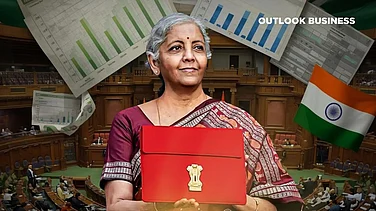The Economic Survey 2023-2024, tabled in the parliament today in the inaugural day of the budget session, has presented various ideas on developing a new policy structure for India’s agriculture sector. This includes a re-examination of the country’s headline inflation targeting framework.
The consumer price index (CPI) measures inflation in the country by tracking the change in prices of goods and services consumed by the retail population. The Central Statistics Office under the Ministry of Statistics and Programme Implementation (MoSPI) publishes the CPI data every month, usually on the 12th of each month.
Currently, the CPI is measured by tracking prices of 299 items across categories such as food and beverages, clothing and footwear, housing, education, household goods, health, etc.
Economic Survey 2023-2024 notes, “Higher food prices are, more often, not demand-induced but supply-induced. Short-run monetary policy tools are meant to counteract price pressures arising out of excess aggregate demand growth. Deploying them to deal with inflation caused by supply constraints may be counterproductive.”
At present, spike in the prices of food products threatens the country’s inflation targets and forces the Reserve Bank of India (RBI) to request government intervention in bringing down food prices. “That prevents farmers from benefiting from the rise in terms of trade in their favour,” the economic survey says.
To mitigate the challenges faced by poor consumers due to higher food prices, the survey recommends direct benefit transfers or highly specific purchase coupons.
The economic survey, tabled in the parliament by Finance Minister Nirmala Sitharaman, also calls for a “serious structural transformation” of the agriculture sector due to threats posed by climate change and water criticality.
Other important agricultural policy recommendations made in the survey include increasing total net irrigated area, not banning futures or options markets at the first sign of price spike, invoking export bans only under exceptional circumstances and making farming consistent with climate considerations.
“The need of the hour is to move from basic food security to nutritional security. We need more pulses, millet, fruits and vegetables, milk and meat for that. Importantly, their demand is growing much faster than that of basic staples. So, farm sector policies should align more with a ‘demand-driven food system’ that is more nutritious and aligned with Nature’s resource endowments,” it says.




























